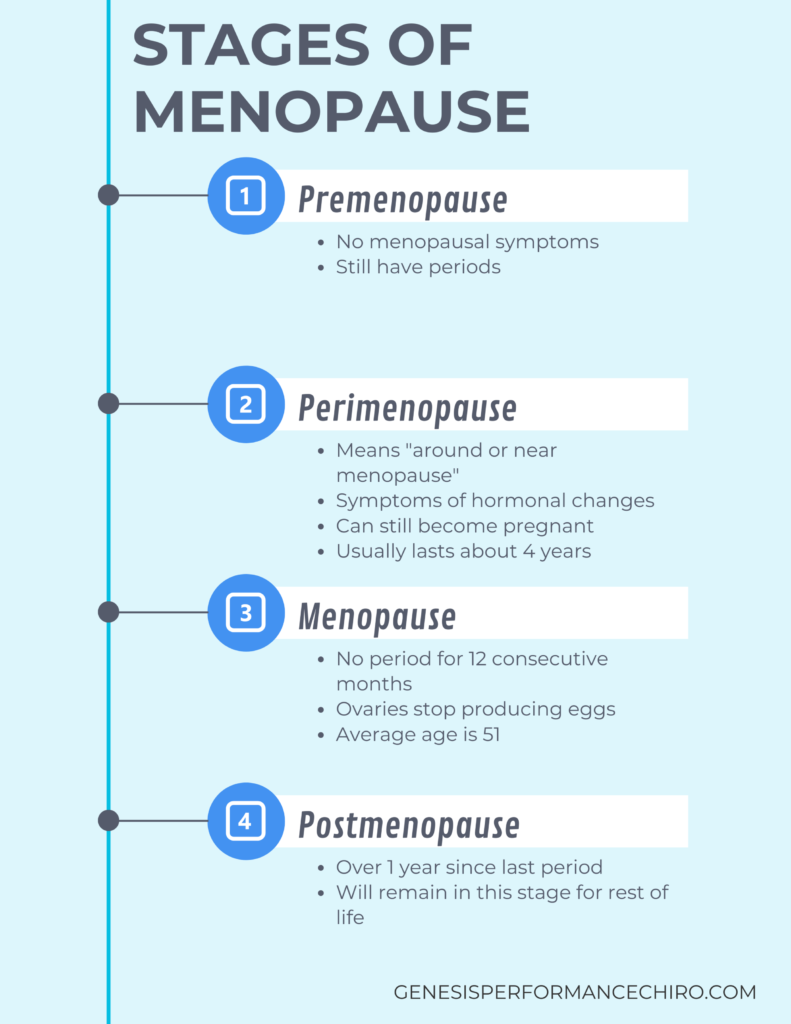As women age, particularly after 40, their bodies undergo significant hormonal changes. These shifts can sometimes lead to hormonal imbalances, which can manifest in a variety of ways.
Recognizing these signs early can help women take proactive steps to manage their health and well-being.
In this guide, we’ll explore the common signs of hormonal imbalance in women over 40, how these imbalances can impact daily life, and what can be done to restore balance.
Top 9 Signs of Hormonal Imbalance in Women Over 40
1. Irregular Periods and Menstrual Changes
One of the earliest and most noticeable signs of hormonal imbalance in women over 40 is changes in the menstrual cycle. As women approach menopause, they may experience irregular periods, heavy bleeding, or spotting between cycles. This is often due to fluctuations in estrogen and progesterone levels.
Recommended: How to Sleep Better During Menopause
The perimenopausal phase, which can begin as early as the late 30s or early 40s, is marked by a gradual decline in hormone production. The ovaries start to produce less estrogen and progesterone, leading to cycles that are less predictable.

While irregular periods are common during this time, if the bleeding is excessively heavy or accompanied by severe pain, it may indicate a more serious hormonal imbalance that requires medical attention.
2. Mood Swings and Emotional Changes
Mood swings, irritability, and depression are common signs of hormonal imbalance, particularly as women approach menopause. The fluctuations in estrogen and progesterone levels can have a direct impact on neurotransmitters in the brain, including serotonin, which plays a key role in regulating mood.
Women over 40 may find themselves experiencing sudden bouts of anger, sadness, or anxiety without any apparent cause. These emotional changes can affect relationships, work performance, and overall quality of life.
Recommended: 8 Natural Remedies for Menstrual Cramps Relief
Hormonal imbalances can also exacerbate existing mental health conditions, making it essential to address these symptoms early.
3. Weight Gain and Metabolic Changes
Unexplained weight gain, especially around the abdomen, is another common sign of hormonal imbalance in women over 40. As estrogen levels decline, the body’s metabolism can slow down, leading to weight gain even if there hasn’t been a significant change in diet or exercise habits.
Recommended: 9 Best Supplements For Perimenopause Weight Gain
The reduction in estrogen can also lead to insulin resistance, making it harder for the body to process sugars effectively. This can result in increased fat storage, particularly around the midsection.

Additionally, stress hormones like cortisol may become more dominant, further contributing to weight gain and making weight loss more challenging.
4. Sleep Disturbances and Insomnia
Hormonal imbalances can wreak havoc on sleep patterns. Many women over 40 report difficulties falling asleep, staying asleep, or waking up feeling unrefreshed. This is often due to the decline in progesterone, a hormone that has a calming effect and helps promote sleep.
Estrogen also plays a role in regulating the sleep cycle by maintaining body temperature and promoting REM sleep. As levels of these hormones drop, women may experience night sweats, hot flashes, and other symptoms that disrupt sleep.
Recommended: Chinese Medicine For Menopause Weight Gain
Chronic sleep deprivation can lead to a host of other health issues, including increased risk of cardiovascular disease and cognitive decline.
5. Decreased Libido and Sexual Dysfunction
A decline in sexual desire and changes in sexual function are common concerns for women experiencing hormonal imbalance. Reduced levels of estrogen and testosterone can lead to a decrease in libido, vaginal dryness, and discomfort during intercourse.

Estrogen is crucial for maintaining vaginal health, including lubrication and elasticity. Testosterone, though often associated with men, plays a role in female sexual desire.
Recommended: Does Ovulation Make You Sleepy?
As these hormone levels drop, women may find it more difficult to become aroused or enjoy sexual activity. This can lead to feelings of frustration and impact intimate relationships.
6. Fatigue and Low Energy Levels
Persistent fatigue and low energy are frequently reported by women over 40 who are dealing with hormonal imbalances. Even with adequate sleep, these women may feel tired, sluggish, and unable to perform daily tasks with their usual vigor.
Hormonal imbalances can affect the body’s ability to regulate energy levels. For example, low thyroid hormone levels (hypothyroidism) can cause extreme fatigue, weight gain, and depression.
Recommended: Does Female Masturbation Affect Ovulation?
Additionally, fluctuations in cortisol, the stress hormone, can lead to chronic fatigue and burnout. Addressing these imbalances can help restore energy and improve the overall quality of life.
7. Hair Thinning and Skin Changes
Changes in hair and skin can also be indicative of hormonal imbalances in women over 40. Thinning hair, dry skin, and the appearance of wrinkles or acne can all result from declining hormone levels.
Estrogen helps maintain collagen production, which is essential for skin elasticity and hair growth. As estrogen levels drop, women may notice their skin becoming drier, less firm, and more prone to wrinkles. Hair may also become thinner and more brittle.
Recommended: Do Men Still Feel Pleasure After a Vasectomy?
Hormonal imbalances can also lead to increased production of androgens, which can cause acne and other skin issues.

8. Hot Flashes and Night Sweats
Hot flashes and night sweats are hallmark symptoms of hormonal imbalance, particularly during perimenopause and menopause. These sudden feelings of heat, often accompanied by sweating and a rapid heartbeat, can be uncomfortable and disruptive.
Recommended: 3 Human Hormones Most Directly Involved in Sexual Reproduction
Hot flashes occur when fluctuating estrogen levels affect the hypothalamus, the part of the brain that regulates body temperature. The body mistakenly senses that it is overheating, triggering a rush of blood to the skin’s surface in an attempt to cool down. This can lead to intense sweating, especially at night, disrupting sleep and affecting daily life.
9. Memory Lapses and Cognitive Changes
Many women over 40 report experiencing memory lapses, difficulty concentrating, and other cognitive changes as they approach menopause. These symptoms are often linked to hormonal imbalances, particularly declines in estrogen, which plays a role in brain function.
Recommended: Hair Fall After Pregnancy Home Remedy
Estrogen has neuroprotective properties, meaning it helps protect brain cells and maintain cognitive function. As estrogen levels decrease, women may notice a decline in memory and mental clarity. This “brain fog” can be frustrating and may affect work performance and daily tasks.

How to Address Hormonal Imbalances
While hormonal imbalances are a natural part of aging, they don’t have to be endured without support. There are several approaches women over 40 can take to manage their symptoms and restore balance:
1. Lifestyle Changes
Diet and exercise play a crucial role in maintaining hormonal balance. A diet rich in fruits, vegetables, lean proteins, and healthy fats can support hormone production.
Regular physical activity, including strength training and cardio, can help regulate metabolism and reduce stress.
Recommended: Does Ovulation Make You Emotional?
2. Hormone Replacement Therapy (HRT)
For some women, hormone replacement therapy (HRT) may be an option to alleviate symptoms of hormonal imbalance. HRT can help restore levels of estrogen and progesterone, reducing symptoms like hot flashes, mood swings, and vaginal dryness. However, it’s important to discuss the risks and benefits with a healthcare provider.
3. Natural Remedies and Supplements
Some women prefer to manage their symptoms with natural remedies and supplements. Phytoestrogens, found in foods like soy and flaxseed, can mimic the effects of estrogen in the body.
Additionally, supplements like black cohosh, evening primrose oil, and magnesium can help alleviate symptoms like hot flashes, mood swings, and sleep disturbances.
Recommended: Can I Take Magnesium While Breastfeeding?
4. Stress Management
Chronic stress can exacerbate hormonal imbalances, making stress management a key component of treatment. Techniques like meditation, yoga, deep breathing exercises, and mindfulness can help reduce cortisol levels and improve overall well-being.
Conclusion
Hormonal imbalances are common in women over 40, but understanding the signs and taking proactive steps can make a significant difference in managing symptoms. By recognizing the changes in their bodies and seeking appropriate care, women can navigate this phase of life with greater ease and confidence.
Whether through lifestyle changes, medical interventions, or natural remedies, there are many ways to support hormonal health and improve quality of life during this time of transition.
